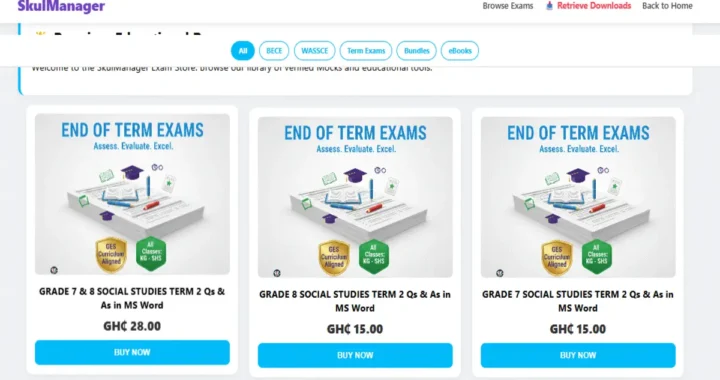The Ultimate Guide to Crafting an Effective Study Plan for Academic Success

When it comes to studying, many students feel lost or overwhelmed. This is where a study plan enters. A study plan is like a detailed map that shows where to go and how to get there on your academic trip. It helps students stay organized and focused on what they need to learn. Instead of cramming the night before a great test, having a study plan allows you to break down your study in manageable pieces.
One of the main benefits of a study plan is the best time management. When students create a schedule for their studies, they can assign enough time to each subject. This helps to ensure that they do not spend too much time in one area and neglect others. Over time, maintaining a study plan can also improve food and sleep habits, contributing to general well -being. According to Bean and Melzer’s research (2021), a good study plan can help students make connections between new information and what they already know, which leads to better knowledge retention.
The creation of a study plan also encourages critical thinking and active learning. This means that instead of simply memorizing facts, students learn to analyze materials and apply knowledge in several contexts. As students work through their study plan, they can incorporate different learning methods, such as taking notes, discussing topics with colleagues or using online resources to explore in -depth subjects. This variety makes studying more interesting and effective.
In addition, having the habit of following a personalized study plan can make learning less stressful. When students know exactly what to study and when, they can feel more in control of their academic workload. This reduces anxiety, especially during periods occupied as exams. Current educational innovations, as indicated by Assegaf et al. (2022), show that the adaptation of curricula to adapt to individual learning styles can make a big difference. Some students may prefer visual aid, while others can benefit from listening to conferences or participating in discussions.
In addition to these practical benefits, each student’s study plan can be unique and adapt to their specific needs. For example, if a student finds that he fights with certain subjects, he can assign more time to those areas in his plan. This allows a more personalized approach to learning, ensuring that students feel prepared and safe as they advance through their courses.
In general, understanding the importance of having a study plan can establish the basis for academic success. By creating a structure that promotes the organization, time management and active participation in learning, students can significantly improve their study habits. They can take care of their education and work to achieve their academic objectives more effectively. A solid study plan not only benefits students in their current studies, but also equip them with valuable skills that they can use in their future educational and professional efforts., Creating a study plan that works for you is an important step for academic success. It begins to understand how you learn better, that you are a visual student who benefits from diagrams and videos or a hearing student who keeps information better by listening. This knowledge will help you choose the right methods to study all subjects.
So, take a moment to list the different subjects you need to study. Once you have the subjects, evaluate your strengths and weaknesses in each area. This means thinking about what you already know well and where you may need further help. For example, if mathematics is demanding for you, but science comes naturally, your study plan should give mathematics more time so you can improve.
After understanding your learning style and areas of interest, it is time to put your study plan in action. Take into consideration the use of tools such as digital calendars or study apps. These tools allow you to set specific objectives and deadlines that can keep you organized. You can score when and what you study every day, which helps you stay on track. According to Naro et al. (2020), having a clear scheme of study times makes it easier to concentrate and manage your time.
On your study plan, try to include active learning techniques. Active learning means engaging with the material instead of reading it passively. Techniques how to summarize what you learned in your own words can really help. You can also ask yourself questions about the material. This not only helps to strengthen your understanding but also prepares you for potential examination questions (Ekin, 2023).
READ: How To Use Past Exam Questions and Chief Examiner’s Reports For Smart Revision
Remember that a study plan should not be set in stone. It is important to keep it flexible. You may find that some topics take more time to understand or you may have unexpected events that interrupt your program. Being willing to adapt your study plan according to your progress and each challenge will lead to better results. Get the habit of reviewing your plan regularly. According to Mohile et al. (2020), this practice keeps you in line with your educational goals and helps you make necessary changes along the way.
Finally, do not forget to incorporate the breaks on your study plan. Studying for long periods without pause can lead to burnout. The short and regular breaks will help you keep your mind fresh and make study sessions more productive. Whether it’s a walk, take a snack or simply stretch, short breaks help to recharge the brain, allowing you to return to studies with renewed attention.
By adopting these steps, you can create a study plan that meets your unique needs and helps you achieve your academic goals., Stay motivated and committed
Staying motivated while studying sometimes can feel hard. However, creating a study plan that keeps it compromised is key to achieving its educational objectives. It is important to remember that consistency and motivation are vital components by continuing with their study plan. An effective way to stay motivated is to establish small and attainable milestones. These little objectives will help maintain their high spirit as your progress tracks. For example, instead of trying to finish a complete chapter of a single session, it aims to complete only a few pages or sections at the same time. Every time you reach a milestone, take a moment to celebrate your achievement. This can make the study feel more rewarding and fun.
Another excellent way to stay compromised is to study with friends or classmates. When connecting with your classmates for study sessions or discussions, it can help increase your motivation. Working in a group often leads to a deeper understanding of the subject, since everyone can share ideas and explain difficult concepts (Bean & Melzer, 2021). In addition, the social aspect of learning together makes studying less insulating and more pleasant.
READ: Mastering Academic Excellence: Six Study Habits of Highly Successful Students
At your study schedule, be sure to include breaks. Taking regular and short breaks can help you avoid exhaustion and maintain your enthusiasm for living learning. For example, after studying for 25-30 minutes, take a 5-minute break to stretch, take a snack or simply rest. This creates a more sustainable way to study and help your brain process what you have just learned.
It is also useful to reflect on your studies regularly. Recognizing their achievements, no matter how small, it will build a positive attitude towards your learning. Continuous reflection and adjustment of your study strategies can lead to better results (Assegaf et al., 2022). Ask you questions such as: What did I learn this week? What study methods did you work best for me? What can I improve next time? Allowing this self -reflection can keep it compromised and motivated in the long term.
Finally, maintaining a positive mentality can change the game. Surround yourself with encouraging resources, such as inspiring appointments, podcasts or videos about learning and academic success. Share your goals with friends or family supports. Remember, sometimes studying will be a challenge, but with a well structured plan and a positive perspective, you can address your academic challenges with confidence and efficiency. Hug the trip and enjoy all the new knowledge you get along the way!
Citations:
Naro, W., Abubakar, A., Yani, A., Amiruddin, M. M., & Syatar, A. (2020). Developing learning method on post-graduated program: A blended learning based on web-blog and print technology design. Cypriot Journal of Educational Sciences, 15(5), 1404-1421.
Bean, J. C., & Melzer, D. (2021). Engaging ideas: The professor’s guide to integrating writing, critical thinking, and active learning in the classroom. John Wiley & Sons.
Assegaf, A. R., Zainiyah, H. S., & Fahmi, M. (2022). Curriculum innovation for the internationalization of Islamic education study program at higher education institutions in Surabaya, Indonesia. Millah: Journal of Religious Studies, 671-706.
Ekin, S. (2023). Prompt engineering for ChatGPT: a quick guide to techniques, tips, and best practices. Authorea Preprints.
Mohile, S. G., Epstein, R. M., Hurria, A., Heckler, C. E., Canin, B., Culakova, E., … & Dale, W. (2020). Communication with older patients with cancer using geriatric assessment: a cluster-randomized clinical trial from the National Cancer Institute Community Oncology Research Program. JAMA oncology, 6(2), 196-204.




 Terrorist Attack Ghanaian Tomato Traders in Burkina Faso
Terrorist Attack Ghanaian Tomato Traders in Burkina Faso  New Term 2 End of Term Question: Nursery to Grade 8 Exam Packs (2026)
New Term 2 End of Term Question: Nursery to Grade 8 Exam Packs (2026)  Why MTN Ghana’s Ghs399 Bundle is the Best Data Deal in 2026
Why MTN Ghana’s Ghs399 Bundle is the Best Data Deal in 2026  CAGD Salary Suspension 2026: Deadlines and Actions for Affected Staff
CAGD Salary Suspension 2026: Deadlines and Actions for Affected Staff